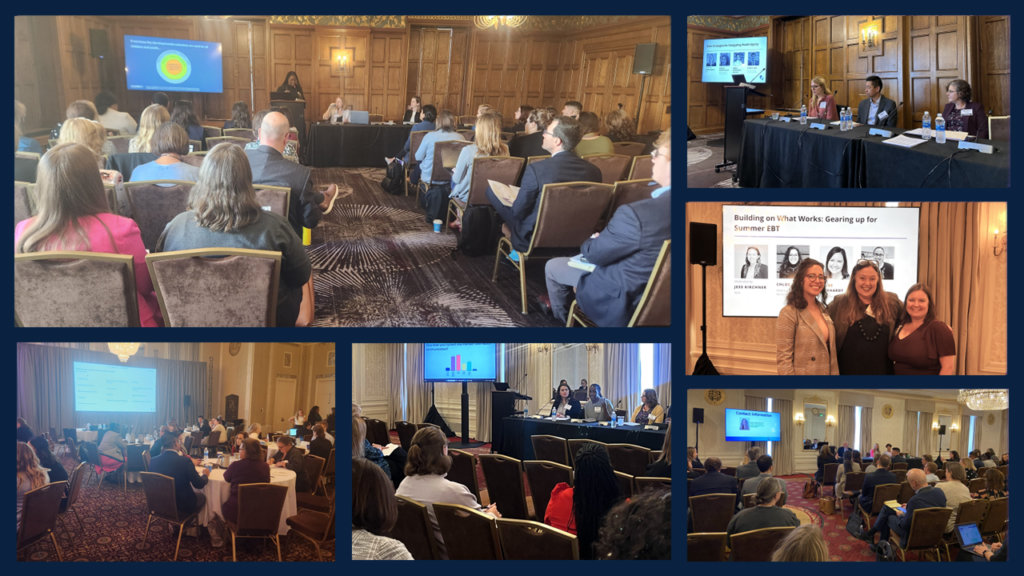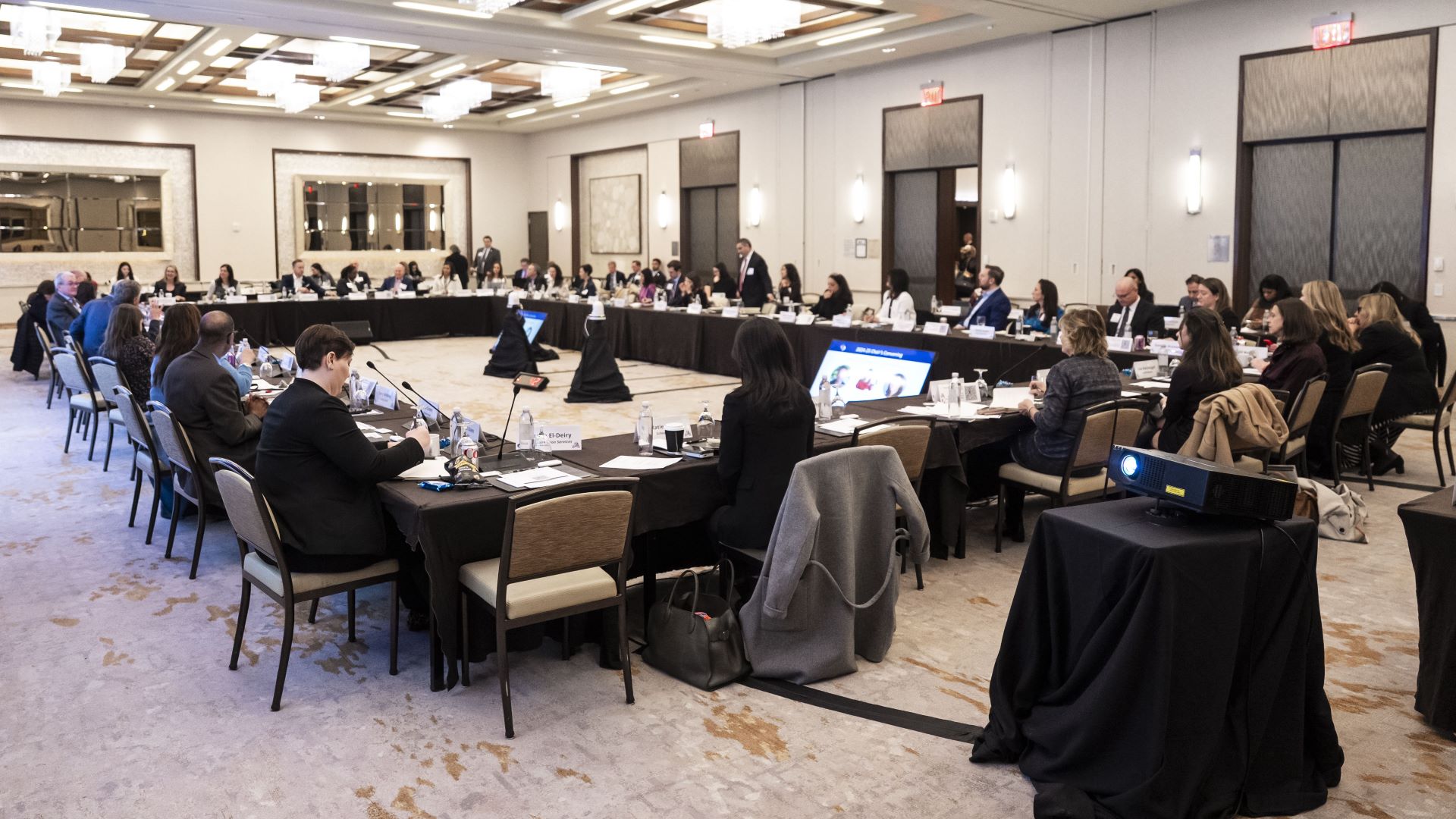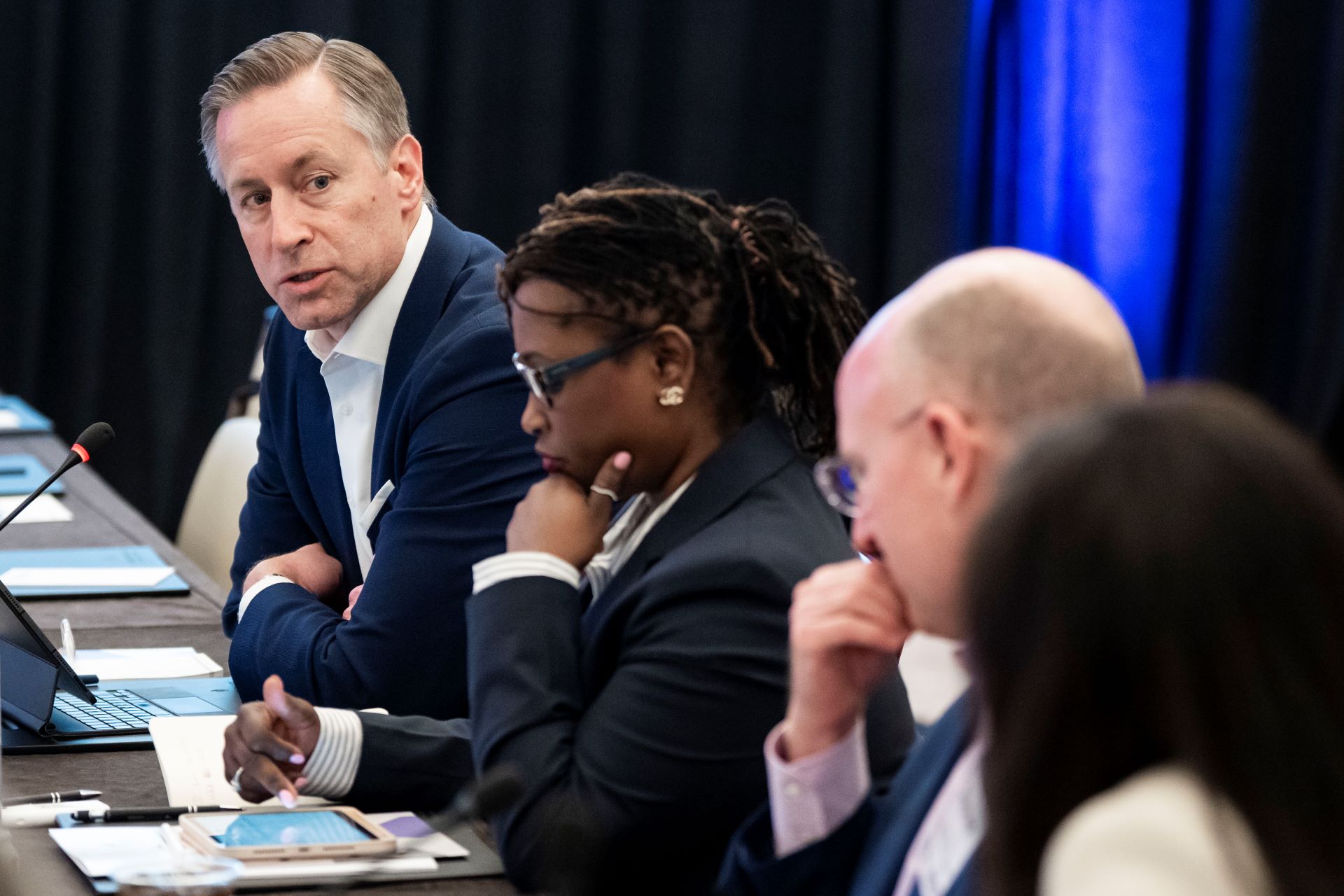The National Governors Association (NGA) was pleased to welcome Governors’ staff from 32 states and four territories to the annual Health and Human Services Policy Advisors Institute in Milwaukee, Wisconsin, October 2-3. The NGA Center for Best Practices’ health and human services teams hosted Governors’ staff, subject matter experts and partners with the goal of sharing best practices and innovative strategies across these policy areas. More than 65 Governors’ staff members and 30 partners attended this year’s event, which allowed them to connect through networking opportunities and learn from each other as well as subject matter experts through four plenaries and 12 breakout sessions.

In the first session, the Center’s health and human services program directors reviewed the highlights of their portfolios, reminding attendees of the many areas in which NGA can assist Governors and their teams.
An audience poll then served to identify the Governors’ top health and human services priorities for 2024, which included interest in policies addressing the following issues:
- Healthy families, including childcare access, child welfare reform, nutrition and food access, maternal health and access to quality education;
- Behavioral health, including youth mental health, substance use prevention, system reform and integration with primary care;
- Health and healthcare infrastructure, including healthcare and human services workforce, Medicaid reimbursement and building service capacity;
- Access to health and healthcare, including health equity, ensuring access for populations at greater risk of poor outcomes, and healthcare costs and affordability;
- Community and social influences on health, including housing and homelessness, community revitalization and social drivers of health; and
- System reform, including behavioral health, child welfare, developmental disability system reform and data modernization.
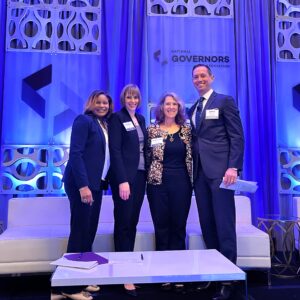
The event’s opening plenary dove into ways states can better use data and modernize their systems to get more from the information they have. Dr. James Dolan of EY-Parthenon moderated a conversation with Vivian Singletary of the Public Health Informatics Institute, Dr. Katherine Feldman of the Maryland Department of Health and Heather Borski of the Utah Department of Human Services. The discussion covered topics ranging from the importance of accurate and timely data in public health and the challenges facing states in gathering and using data, to technology-assisted opportunities to modernize the way states collect and use this information.
The first day of programing also provided an opportunity for attendees to learn about practical and actionable information across six breakout sessions. Topics included the implementation of the new Summer Electronic Benefit Transfer program, tools and processes for fiscal mapping across agencies, state housing support strategies for those with serious mental illness, and state approaches to strengthening healthcare for older adults and providing age-friendly healthcare. A session on public health communications explored strategies for developing and disseminating health-related messages. Attendees joining the afternoon session on The Future of Public Health connected in small groups to share best practices and talk with subject matter experts on topics such as public health governance, funding, workforce, data and partnerships.
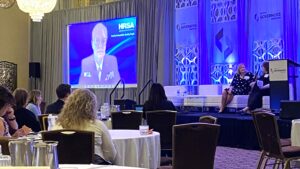
NGA’s Healthcare Delivery team closed out day one with a plenary presentation and discussion about the health and human services workforce. Commander Sharyl Trail, HRSA Region Five Administrator, highlighted the extensive resources and data available from the Health Resources and Services Administration (HRSA) that can support Governors and their staff aiming to bolster the healthcare workforce, including programs to support the development of pathways into health careers to enrich the pipeline of healthcare workers so they better reflect the communities they serve as well as resources related to workforce wellness initiatives. Dr. Cynthia Persily, Secretary of Human Services for West Virginia Governor Jim Justice, described the workforce challenges her state is facing and innovative initiatives to build the healthcare workforce, focusing on understanding and building the nursing workforce as well as launching a podcast to highlight the daily experiences of health workers and generate interest in health careers.
After an evening of networking, attendees started the second day of programming with a discussion between Dr. Elizabeth Cuervo Tilson, State Health Director and Chief Medical Officer for North Carolina Department of Health and Human Services, and Zaida Dedolph Piecoro, Health Policy Advisor for Arizona Governor Katie Hobbs. Moderator Melinda Dutton of Manatt guided the panelists through a conversation about how to ensure access to health for all people regardless of social and economic factors and how states may use Medicaid to address health-related social needs. Panelists also discussed strategies and opportunities related to food access, housing, patient education, and ways to better integrate health and human services systems to meet individual needs more effectively. This session set the stage for breakout conversations throughout the remainder of the day, which covered topics including childcare costs, health equity (including racial, rural and disability equity), technology and AI in health and human services, age-friendly healthcare, overdose prevention and rural public health infrastructure.
The closing session tied together the various topics discussed throughout the event, focusing on detailed and practical strategies state leaders can take to support families with substance use disorder. Dr. Nia Cantey of Casey Family Programs led an interactive discussion with Allison Genco, Public Health Resource Office for Nevada Governor Joe Lombardo; Kristina Killen, Senior Program Associate for Center for Children and Family Futures; and Jennifer O’Brien, Policy Fellow at Chapin Hall, University of Chicago. Speakers pointed to the importance of early screening and engagement in treatment as well as the role stigma and the fear of consequences have played in preventing individuals from seeking help. Panelists also stressed the need to elevate culturally specific interventions and leverage community participation, delving into detailed descriptions of programs and strategies being implemented in states. Many big picture themes emerged, including the need for collaboration among systems to help develop a shared vision, the importance of having a long-term outcomes perspective when supporting families, and the role of poverty in assessments of neglect and welfare system involvement.
Attendees closed out an information-packed two days by sharing an evening with Governors’ education policy advisors and partners at a reception. Governor Tony Evers provided recorded remarks that underscored his commitment to investing in health and human services to support youth and families. The Governor’s remarks also detailed how optimal health contributes to children’s ability to learn in the classroom.
NGA thanks the representatives of the states and territories for their willingness to connect and share policy challenges and solutions as well as for the NGA partners, program funders, invited guests and subject matter expert speakers who joined the event.
